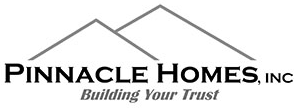A high quality contractor is a high quality contractor. From one to the next, any remodeler should produce the perfect result for any homeowner and project, right? Not exactly.
It’s actually very important that you are well aligned with the capabilities and processes of the home remodeling contractor you’re working with. Let’s look at six things to consider when deciding if you, your project, and your contractor are a good fit.
1. Set a Budget
Homeowners often begin a home remodeling project – whether it’s a kitchen remodel, bathroom upgrade or basement renovation – without a budget in mind. They think a remodeling contractor will just tell them what it will cost to achieve their dreams, and hopefully they can afford it.
Instead, begin with a budget in mind – at least a range – and that will help a contractor understand what they have to work with.
2. Start Strong
It’s important that there’s a strong starting point, meaning there’s already a specific vision for the completed project. Even the best contractor in the world needs more to go on than “you know, a more modern kitchen” as the ultimate goal. Dream up the finished renovation and be as specific as possible. And if you need help coming up with the vision for the project, a Design/Build company might be a good fit.
3. Quality and Style
Contractors, like any professionals, will offer a range of quality and style. This isn’t just good vs. bad, because each different style could come recommended based on the individual. Whether you like luxury, artistic, solid and unadorned, modern and bold, or traditional and timeless – make sure your contractor has completed projects close to the style you’re going for.
Different contractors will bring different levels of style and creativity. Consider whether their style connects with your own – it’s important.
4. Overall Comfort
You should be completely confident and comfortable with the remodeling contractor you’re hiring. This includes the shared vision for what a finished project will look like, cost, timeline, and also the process for completion. Will it be enjoyable to work with this person for weeks or even months? Will you be comfortable with them in your home? Are they friendly? Do they understand what is really being asked of them?
Asking for references is a great way to get a feel for a contractor. Be sure to go beyond just client references; request the names of a few vendors and suppliers, too. You’ll learn a great deal by talking with other people who work with a contractor.
Bottom line, get to know your potential contractors and make sure you’re comfortable.
5. Who Actually Does the Job?
You may love the contractor you’ve hired to do a job, only to find out it’s actually his assistant or second team that comes in to do the work. Be sure you know who is actually completing the job and going to be in your home.
It’s also important to be aware of the size of a remodeling company. Bigger is not necessarily better; but small doesn’t always equal positive either. Some people prefer a larger company, while others are more comfortable when they know the owner is actually involved in the project and often on the work site.
6. Decision Making Process
Many small details will arise over the course of a job. Is the contractor responsible for making small judgment calls? Or should everything go through you personally? How is this process handled along the way? Either way, be on the same page, whether that means delegating certain responsibilities or ensuring full decision-making control for even the smallest of concerns.
All of this is why it’s so important to meet and speak with a few different contractors in the early stages of the planning process. Look for more than credentials and recommendations. Those items are certainly very important; but try to get an overall sense of whether this will be a good fit, and find the right company for the job.
Editor’s Note: This article was originally published in September, 2015 and was updated in August, 2021 for accuracy.

